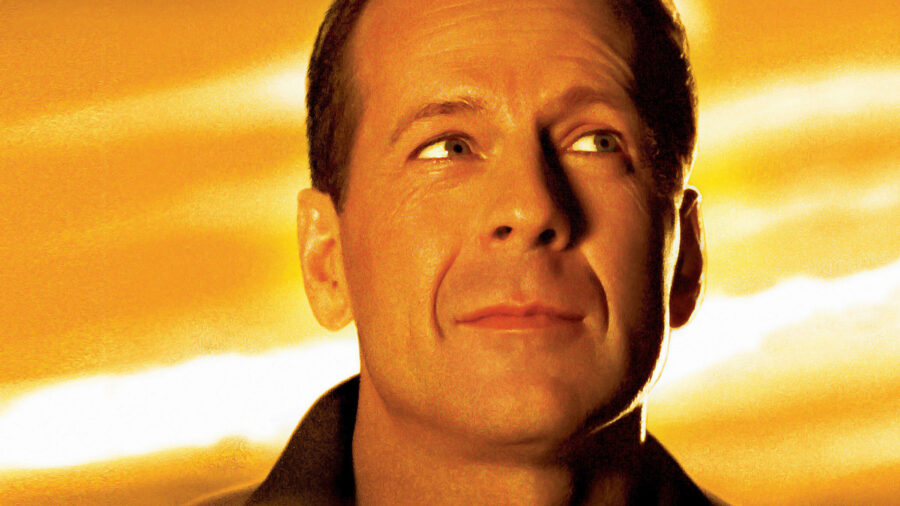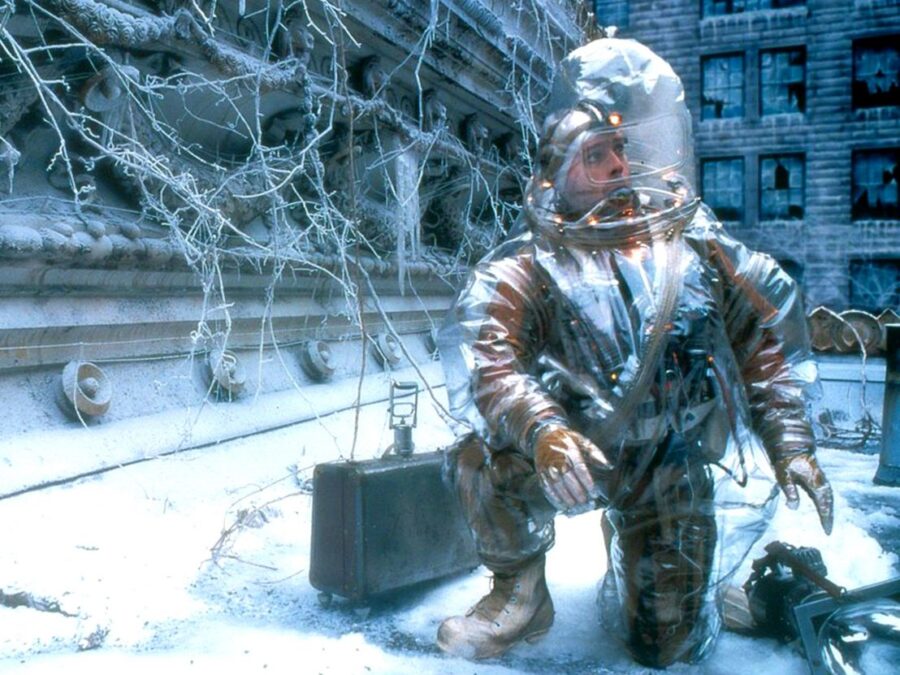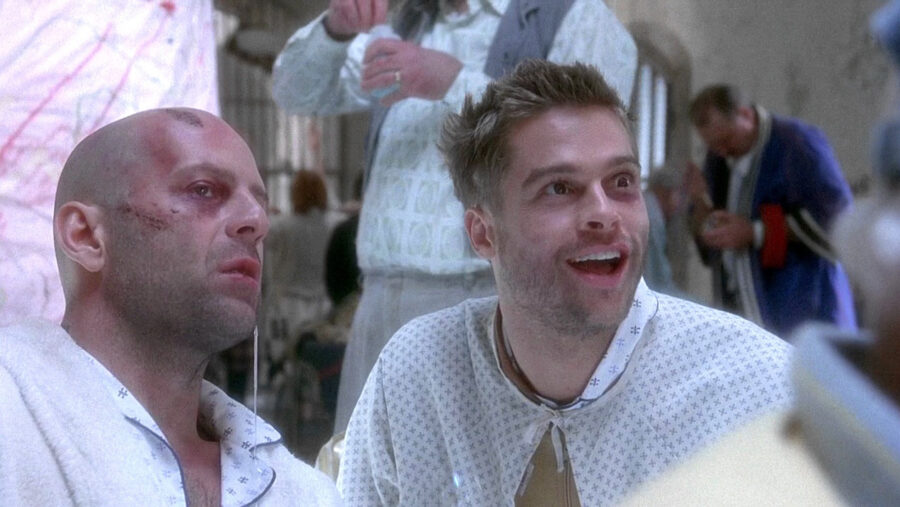Bruce Willis’s Best Movie, And Why It’s Not Die Hard
A Bruce Willis movie better than Die Hard?
This article is more than 2 years old

Let’s get this out of the way immediately — Die Hard is magnificent. Along with being a great, classic, innovative action flick in its own right, it changed the genre forever. In a time when actors with musculature reminiscent of superheroes like Sylvester Stallone and Arnold Schwarzenegger dominated the action genre, Bruce Willis defeated the bad guys as a bloody, torn up everyman who just wanted to save his wife and to get a working pair of shoes. But Willis’s best film takes place, in part, in a much bleaker future. Put your lightsabers away, The Last Jedi haters — we’re not talking about Rian Johnson’s Looper. No, the best Bruce Willis movie is a sad, beautiful time travel flick — 1995’s 12 Monkeys.
We never get any specifics about what crimes put James Cole (Bruce Willis) in prison, though in the society that exists in 2035, it doesn’t seem particularly difficult to find yourself on the wrong side of the bars. We meet Cole as he’s sent to a virus-ridden downtown Philadelphia empty of any human life. Secured only in some kind of strange suit that manages to look both futuristic and cobbled together at the last minute, Cole is tasked with collecting insects for study. Upon his return, he is given an offer — go back in time and get intel on the Army of the Twelve Monkeys who released the deadly virus that killed most humans and drove the rest underground, in exchange for a lesser sentence. Cole agrees to make like Marty McFly.

In the Baltimore of the ’90s, James Cole is arrested and meets psychiatrist Dr. Kathryn Railly (Madeleine Stowe), who — rather than helping him kill a cyborg like in some other time travel movies — has him committed to a mental institution. It’s while he’s under lock and key that Cole meets the fast-talking (literally) and dangerously brilliant Jeffrey Goines (Brad Pitt). To say too much more is to spoil far too much of this amazing Bruce Willis movie. Suffice to say: James Cole is destined to bounce back and forth across time much more than he bargained for and to encounter both Railly and Goines in the future, Goines proves to be both much more and much less than we thought, and by the tragic conclusion we learn Cole in a sense knew how it was going to end all along.
12 Monkeys was directed by a guy with a unique visual signature to his films; particularly when it comes to any that involve science fiction. Terry Gilliam directed the 1985 dystopian epic Brazil, and it’s difficult to not think of that film while watching the future sequences of 12 Monkeys. Universal reportedly vetoed Gilliam’s original choices for Nick Nolte as Cole and Jeff Bridges as Goines. According to the 12 Monkeys DVD production notes, the director then went with Bruce Willis because he felt the actor was great at playing someone “strong and dangerous but also vulnerable.”

And that’s precisely what makes 12 Monkeys the best Bruce Willis movie. The actor’s performance is like nothing we’ve seen him in before. There’s no wisecracking, no bravado, and no action hero in sight. James Cole looks like someone who could beat you to death — and occasionally acts like someone who would do it — but he is constantly at someone else’s mercy. In 2035 he’s at the mercy of the myopic doctors who see him as nothing more than a puppet. In the hospital he’s at the mercy of Goines, and later even at times at the mercy of Dr. Railly; who, thankfully, unlike the rest of them, actually exercises mercy. What we get from Willis is raw, unstylized, and so much more riveting. When he beats a man to death who tries to rob him and Railly, he doesn’t do it with a catchy one-liner — he does it like a wild, scared animal.
Do the critics agree that 12 Monkeys is the best Bruce Willis movie? No, not by any of the more concrete indicators we have. 12 Monkeys was nominated for 2 Oscars, while Die Hard was honored with 4 nominations; some might want it noted that out of the two, 12 Monkeys was the only one nominated for any acting-related Oscars (Brad Pitt for Best Supporting Actor). On Rotten Tomatoes, Die Hard is the critics’ top Willis flick while 2021’s American Siege is #1 for audiences, and in both cases 12 Monkeys has a respectable sixth place.
Though we would be remiss if we didn’t point out a few things. First, 12 Monkeys actually made $27.2 million more than Die Hard (though, to be fair, the former came out seven years later, so there’s inflation to consider). Second, while, yes, critics liked Moonrise Kingdom and Pulp Fiction better than 12 Monkeys, we all know reviewer bias is such that either Wes Anderson or Quentin Tarantino could go to the bathroom and whatever they left behind would get at least a 70% on Rotten Tomatoes. And third, Terry Gilliam’s 12 Monkeys would go on to spawn a sci-fi mystery drama TV series that just about everyone agreed was canceled far too soon, while Die Hard spawned one decent sequel and three predictable yawn-fests.
So regardless of the critics, this writer’s choice is clear. If you want to argue about what is or isn’t a Christmas movie, watch Die Hard. If you want to watch a great, tragic film that leaves you with a memory of a singular experience, watch 12 Monkeys.











